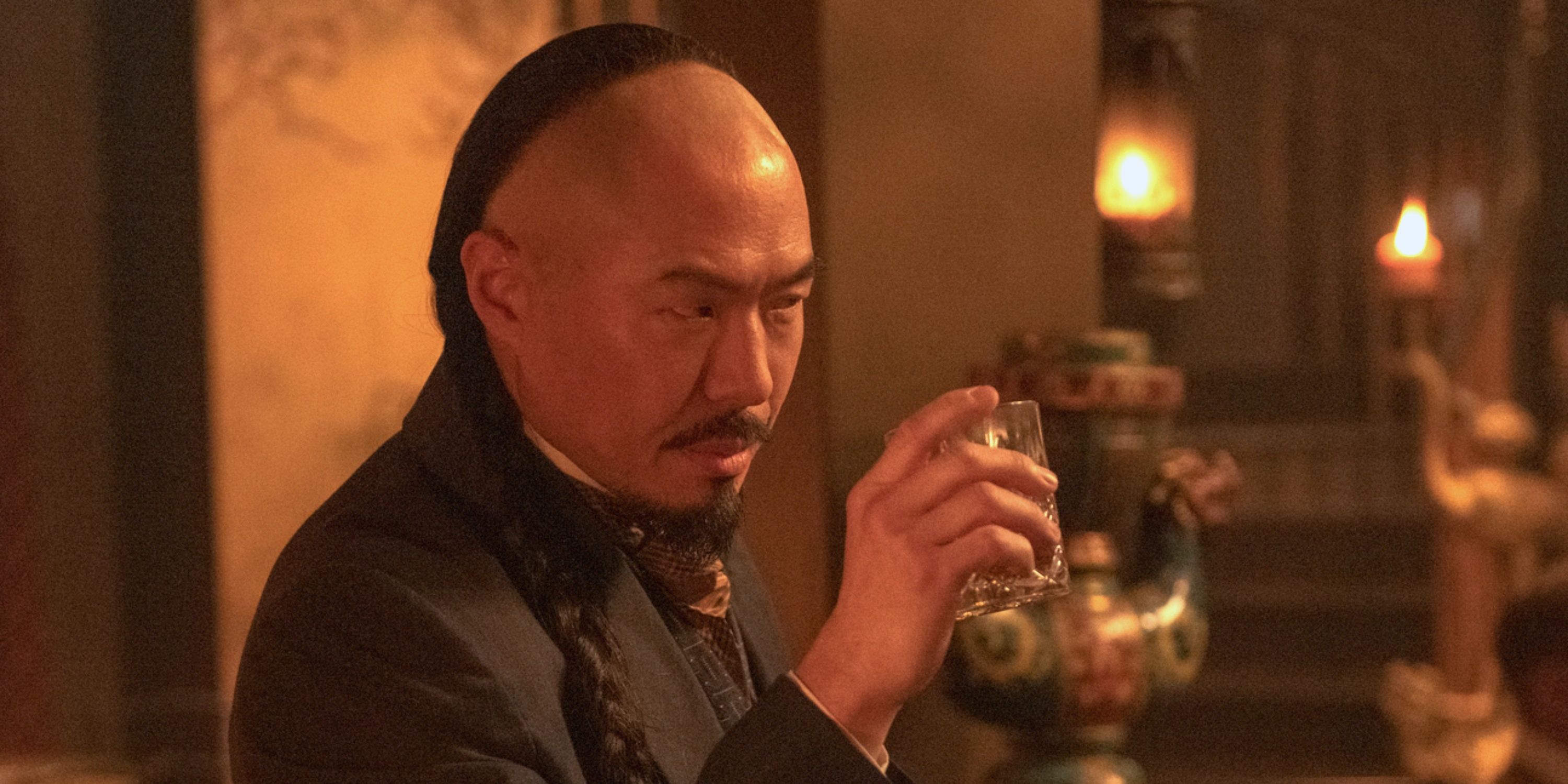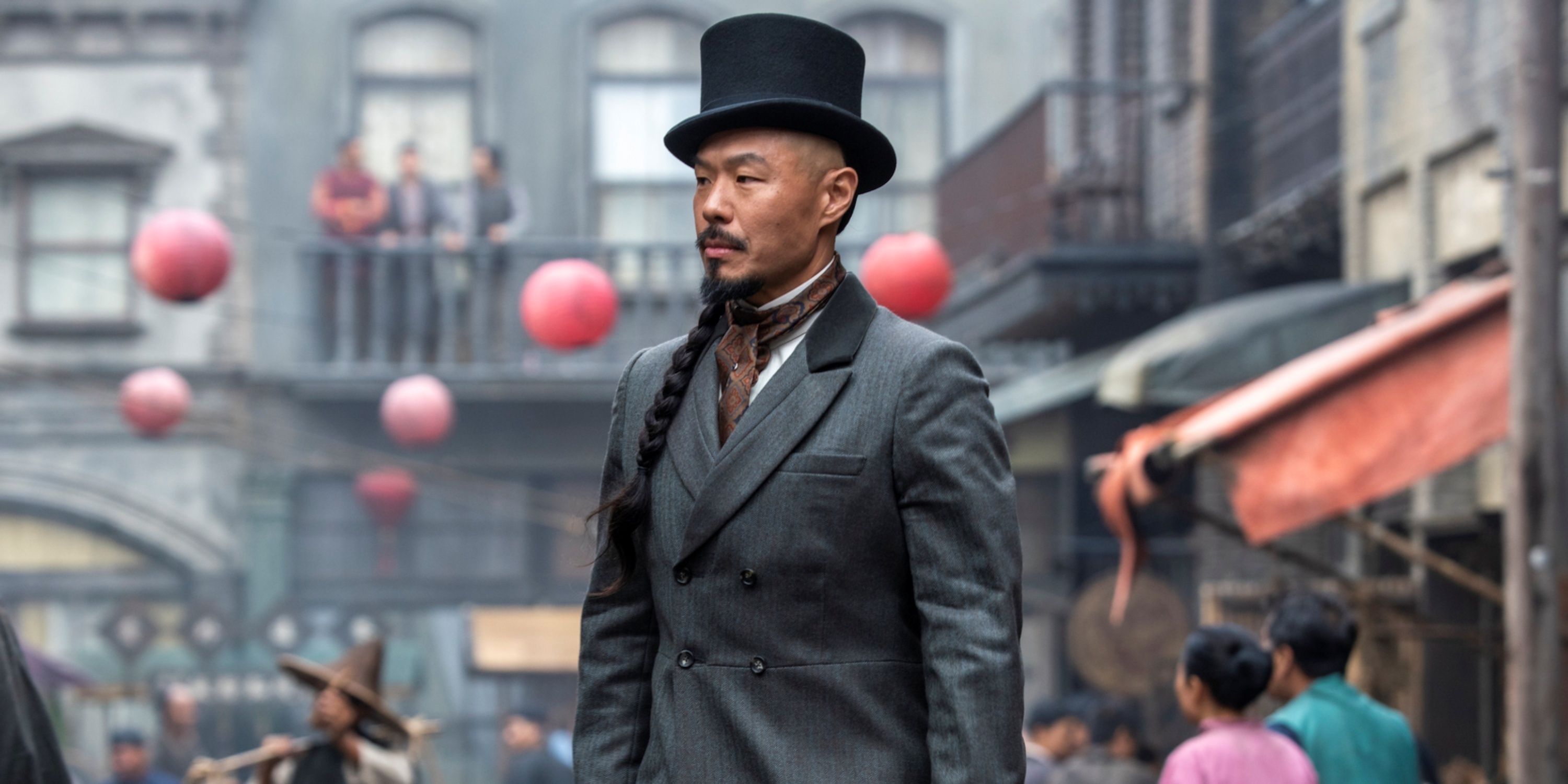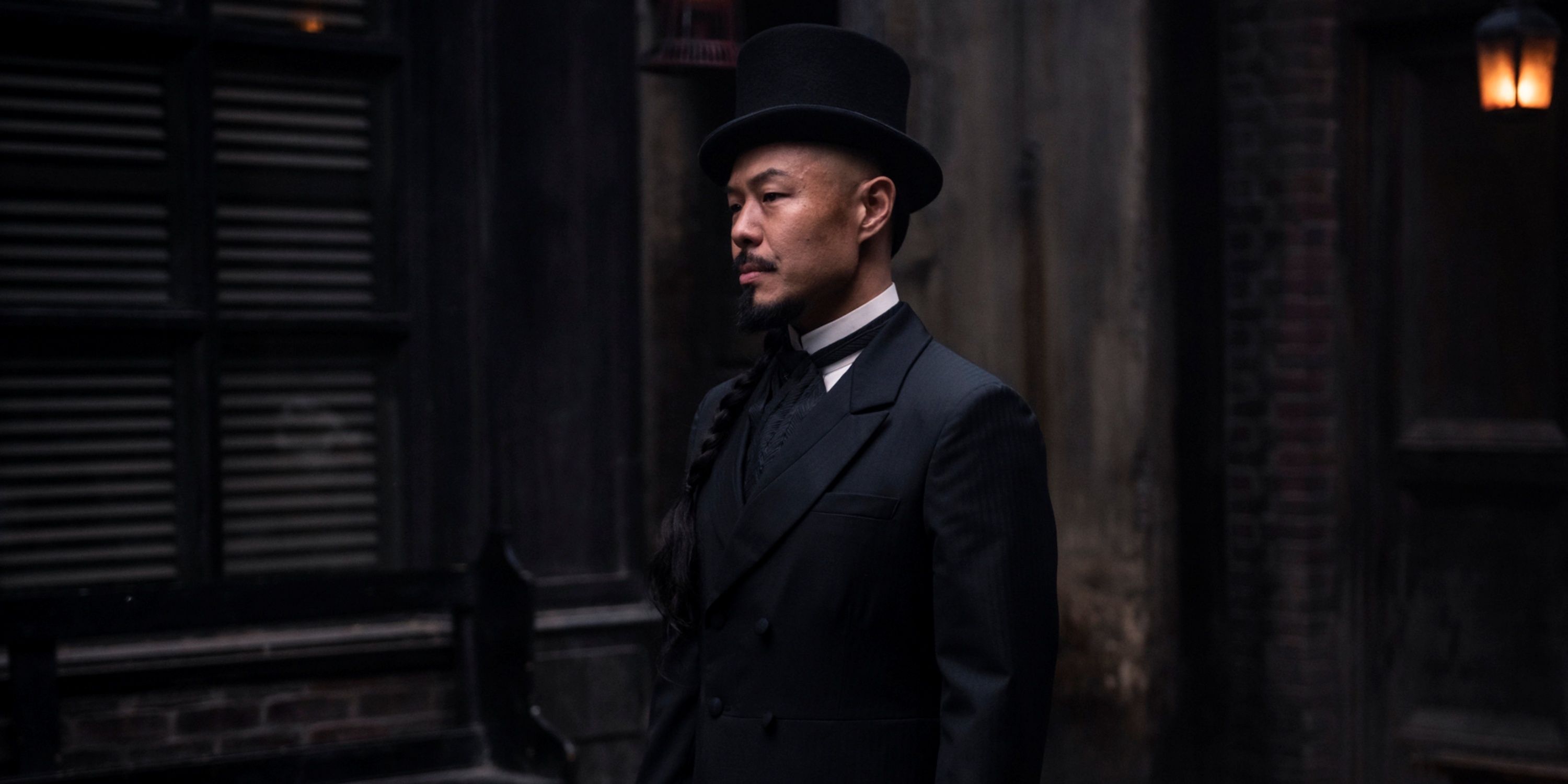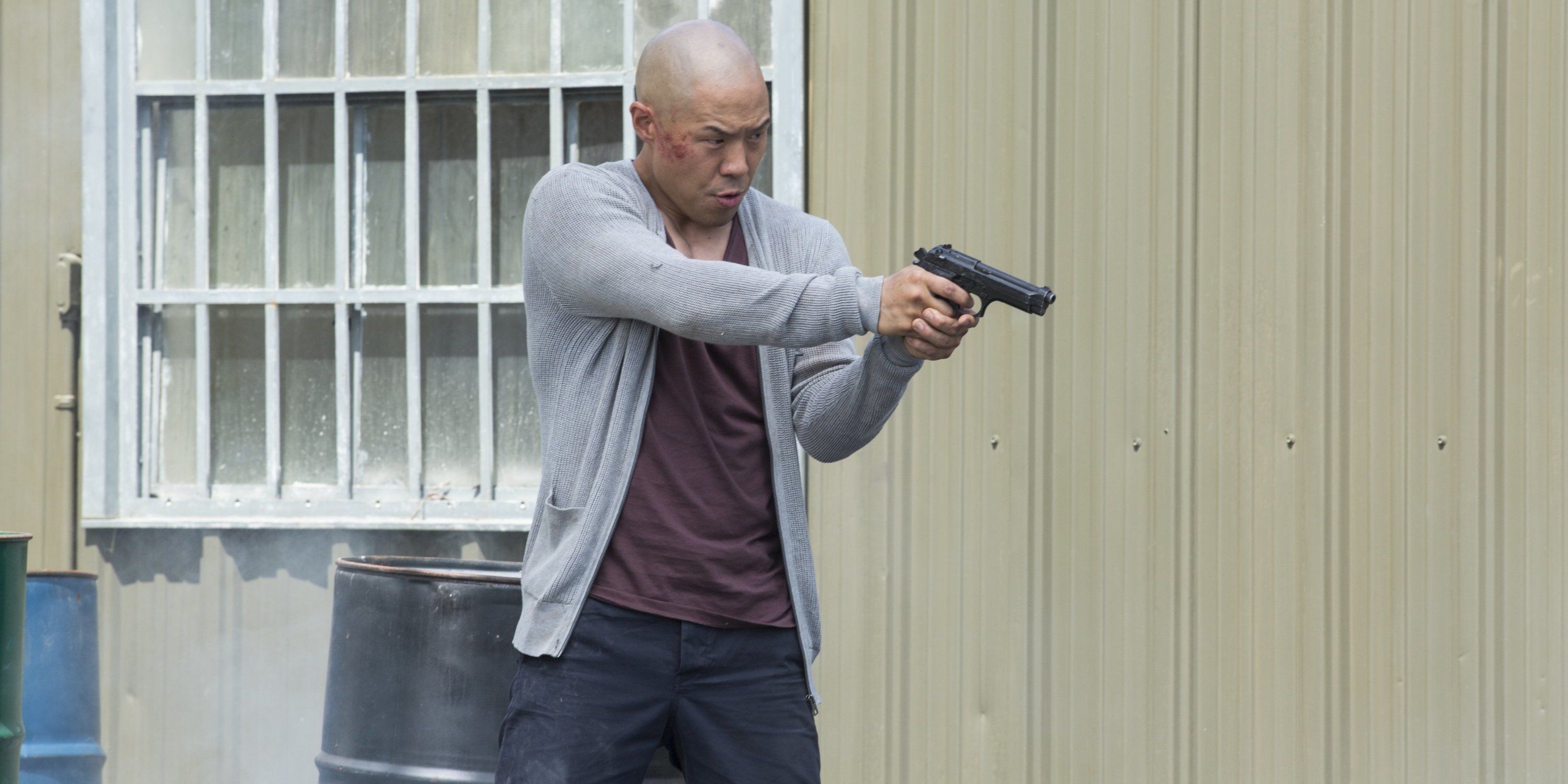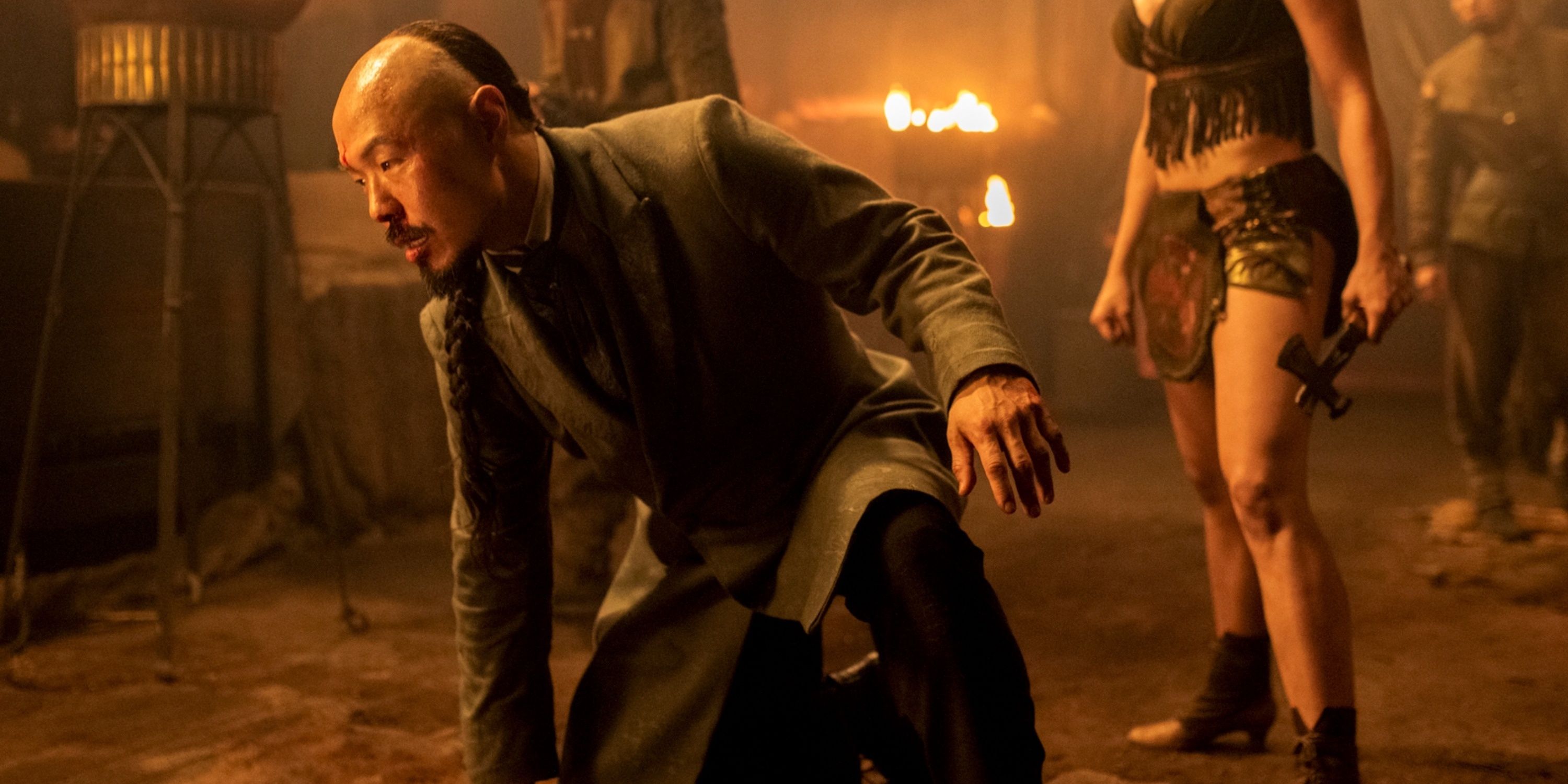If you’re into badass action, complex characters, and a fascinating world of heroes and criminals that often blur the lines between each, then you should definitely check out the series Warrior, now streaming on HBO Max. From showrunner Jonathan Tropper and executive producers Shannon Lee (the daughter of Bruce Lee, who wrote the original treatment that inspired the series) and Justin Lin, the story is set during the Tong Wars of San Francisco’s Chinatown in the late 19th century and follows martial arts prodigy Ah Sahm (Andrew Koji), who emigrated from China and is trying to find his place in a new country while making a name for himself and learning that the ties of family, both blood and chosen, will always be pushed to the limits.
During this 1-on-1 phone interview with Collider, actor Hoon Lee (who plays Wang Chao, a black market dealer that tries to remain a neutral middleman in a world teetering on the brink of war) talked about why his character was interesting to him from the very beginning, what made the second season harder than the first, the pressure of being show creator Jonathan Tropper’s good luck charm, knowing that his career peaked with getting to play Job on Banshee, how awful he would feel if the show didn’t get to continue in some way, and trying to find a balance between work and life in a world that’s in a state of flux.
COLLIDER: After the first season and everything that you were able to do in setting up this world, what were you hoping for and looking forward to with Season 2?
HOON LEE: Chao was interesting to me from the beginning. When [show creator] Jonathan [Tropper] talked to me about him, he was interesting to me because he’s one of the few characters that really walks in both worlds. To me, he represents, in some ways, the immigrant experience, as a lot of our parents, for example, have experienced it. There’s this element of assimilation and of striving to achieve something, particularly given his background and the hardships he endured. And so, I always thought they were going to speak to that more broadly and I was very happy to get the scripts and see that they had. Any time you start to be able to fill in the background of a character and flesh them out more fully, it just gives richness to the entire world and a sense of history. I was glad that they were able to use Chao to do some of that.
What was the hardest aspect of making the first season, and did making a season of this series make the second season feel any easier?
LEE: The second part is easy to answer. No, the second season was dramatically harder. In some ways, there’s a silver lining to a certain level of ignorance in Season 1, where you don’t know what you’re getting into. In Season 2, you know exactly what you’re getting into, and then more things are heaped upon that. I think the most difficult thing in Season 1, for me personally, was navigating several novel experiences at once, and fairly significant ones. I had to move to a very different part of the world that has its own societal, cultural, and political concern. I working in an industry that has its own protocols, its own customs, and its habits. Getting used to a new show and a new cast is always a challenge, regardless. It’s the type of show where it’s extremely physical with a lot of moving parts and scenes with hundreds of extras, and you’re trying to be responsible to the subject matter and do your homework on what was happening in the country at the time, trying to find that line between honoring the history that actually existed and departing from it, in this hyperreal world. So, I think that the main challenge was that any one or two of those things is tricky enough on its own, but in combination, it was a lot to juggle at the same time.
This is a character that lives on the surface, quite intentionally. He doesn’t want to have to commit to being any one thing to any one person, which I would imagine helps him in the sense that nobody can hold anything against him, if they don’t know enough about him. How hard is it to peel away the layers of a character like that?
LEE: There’s the difference between what this character exposes about himself within the context of the world and what the audience learns about person. As an actor, you want people to come in to that person’s world, understand that person, feel things with that person, and live with that person. Dramatically, you want that person to have to live by the rules of that character, but these things aren’t actually at odds, at all. They’re wildly different things. We, as an audience, get to see parts of his life that people in the world don’t get to see. I think that tension between what we recognize as the outward-facing portrayal versus what we come to learn about the inner world of that character is part of what makes Chao interesting, at least to me. You start to see motivations and even guess at motivations for why he is the way he is. What I’ve always liked about him is that he’s very, very aware and he fights for his unique position in the world. He’s more vulnerable because he stands alone, but he chooses that danger, if that makes sense. His freedom and his liberty is that important to him, and I think that gives him a really strong backbone of character. Not necessarily morality, but a strong backbone of character.
He definitely seems like one of the characters, or maybe even the only character, that knows exactly who he is.
LEE: Yeah. Put another way, he’s somebody that doesn’t have a lot of discomfort living with a certain set of rules, and anything outside of those rules doesn’t matter. He’s not somebody that’s wrestling a ton with hypocrisy. Even though he may wrestle with decisions that he’s made, it’s not because he’s worried about being seen as “two-faced,” per se. It’s that when he’s troubled by a decision, it’s because he’s broken a rule of his own creation. I always saw that as somebody who recognized and valued self-discipline and self-regulation. He can only rely on himself.
Because he’s not someone known for making big, overt moves, did it surprise you that he would make a move to actively do something about Zing [Dustin Nguyen]?
LEE: We discussed that at some length, because there’s an aspect to Chao which is quite pragmatic. In the conversations, one of the potential things that emerged was, why go to the trouble of framing Zing, personally? Why would he have to do that? That is one of those aspects of the character that is revealed in Season 2. There is something very, very deeply offensive about Zing attempting to put Chao under his thumb. We know that because of Chao’s history as a slave that the idea of being subjugated is intensely distasteful to him. So, it’s not enough to simply solve the problem. He feels he has to make a statement. I think that’s one of those things that really ties into a strong emotional core for me and a very understandable human desire to buck off your oppressor. And so, I felt like that was really interesting because it’s one of the few times where Chao’s native street smarts and pragmatism are superseded by his desire to make a statement to Zing.
When I spoke to Jonathan Tropper about Season 2, he told me that he would never do a show without you because you’re his good luck charm, along with being a multi-faceted actor. What’s it like to hear something like that from a collaborator that you’ve been working with? What do you value about your working relationship together?
LEE: It’s funny because he jokes about that a lot and I don’t think he understands sometimes how much pressure that puts on me. I feel like I’m responsible for the success of his show, in his mind. I know that’s not true. He’s kidding, obviously. There’s a sense where, when somebody thinks well of you and values what you do, you want to rise to that expectation and make sure that you’re meeting that expectation. The biggest thing for me and Jonathan is that, in some ways, we came up together because Banshee was his first big TV thing and my first big TV thing. We established a certain level of trust early on, and he’s never faltered in that for me. He’s never given me cause to doubt him. That makes a relationship very special, regardless of the industry and regardless of the context. So, when I hear those things, I’m of course grateful that he feels that way and moved by it, but I also feel that it’s a relationship we’ve earned from each other.
It’s no secret how much I love Job from Banshee as a character. There are great writers and great actors who bring great characters to life, but then there are characters that form this life of their own and live beyond the show that they’re on. Agent Cooper on Twin Peaks and Boyd Crowder on Justified are two examples of that for me, prior to seeing Job on Banshee. When you play a character like that, how do you move on to another character?
LEE: Once I realized that people felt a certain way about Job, I made peace with the idea that my career might’ve peaked. It was like, “All right, I just have to be okay with that.” I’m so grateful that people responded the way they did to him, but I don’t think I’ve ever been shy about talking about how much of a collaboration Job is. He was created by many hands, and I’m glad to have been part of that. In some ways, I don’t feel a pressure about that because I was only one part of it. I was only one part of this one character. With any character that I’m playing, you just hope that the character has a life and is allowed to evolve because that’s what makes the job interesting. That’s what keeps me motivated and engaged, intellectually and creatively. It doesn’t have to be big stuff.
I remember having conversations about Banshee where I was told, “You might not show up a lot in some of the episodes.” I always said to Jonathan, “I don’t care if I don’t show up a lot, just give me something good to do when I’m there.” I’m much more of a quality over quantity guy. And with Chao, I knew that he wasn’t necessarily going to have a huge presence in the first season [of Warrior], but I trusted that Jonathan was going to keep digging because he does that with all of his characters. Jonathan is really good at not over promising. It makes him somewhat unusual in the industry. He’s very good at reasonable expectations. There are certain things he does where he can’t help himself, and one of them is that he keeps digging at the characters, looking for the next thing, and trying to open the next door.
There are a lot of writers that maybe would talk that game, and he won’t. If anything, he’ll downplay it. It’s in his nature. He writes about family all the time. He gives his characters and his story a heart all the time. Sometimes even when he’s just trying to make something that he thinks is fun, he can’t help but do it because it’s part of his own nature and it’s part of how he writes. So, I trusted that if I just sat tight, Chao would expand. It just was inevitable. That’s one of those things that I find so valuable about our collaboration over the years.
If we were to check back in with Job five or 10 years after we left him, what would you like to think that he might be doing with himself?
LEE: Gosh, that’s a tricky one. I’m actually going to punt on that question and the only reason why is because I have a lot of respect for the work that writers and creators do on a show, and I don’t think that these are my characters. I drive them, but I’m not the steward of them and I don’t own them. I could theorize, but I don’t think that’s particularly fair or respectful to the writer. The only thing I would say is that, no matter what, there would be some sort of ongoing connection to the people that are close in his life because he doesn’t have that many people that are close in his life. So, Sugar and Ana and Lucas, even if they were separated over time and maybe hadn’t seen each other for awhile, he’d be keeping tabs and watching out in his own way.
I’m just curious about whether he would be exactly who he was when we last saw him, or if he might’ve evolved into something else.
LEE: That’s a really good question. My instinct is to say evolve, but what that means for him is tough to say. Our perspective on Job was always that he wasn’t one thing or another. People try to put people in boxes all the time and they try to create ontologies all the time. A common thread between Job and Chao is that Job very much wants to live on his own terms. He doesn’t want to follow your rules, he follows his own rules. Whatever he wants to pull from whatever affect is useful to him, he’s going to do that. He doesn’t care about your convention. He doesn’t care about what you think is proper. I think evolution for Job, therefore, is difficult to track because I only have my own frame and I think Job’s much more sophisticated than mine
Being in the business of everyone’s business gives Chao an advantage in most things, but also is something that could be very dangerous for him. How close to the edge of trouble does he get?
LEE: The flipside of Chao’s operation is that all of the advantages granted to him by walking both sides of the line are mirrored by the dangers of walking both sides of the line. Maybe he doesn’t have a side, but that means he maybe doesn’t have any allies or people that have got his back, one hundred percent. The choice to be independent means that you are willing to stand alone, so when the sides are drawn and the battle comes, you could be away from it, or you could be attacked by all sides. That’s the threat of the season for him. That’s what’s borne out, really. And we see it not only with Chao, but with one of the other independents, Ah Toy. Being caught up in the maelstrom of the chaos in Chinatown, without the backing of a team and a firm family, you’re that much more vulnerable. Chao went further by extending himself in a slightly daring way against the Fung Hai, and that’s what really, probably put him in the greatest jeopardy in the entire season. It’s nice to see the character take a risk like that and put himself in danger for something that he believes in.
This world is so big in scope and it’s populated by so many characters. What’s it been like to move throughout that world and become more and more a part of it as you interact with more and more of the people that he’s crossing paths with?
LEE: One of the things I remember talking to Jonathan about in Banshee was that Job interacted with very few people. By contrast, Chao interacts with so many people. For me, that’s one of the real joys of playing Chao because the cast of Warrior is wonderful. For me, it’s very rare that you come away with so many good friends. Just the idea that I would show up on set and be able to play with a bunch of different people, all of whom I really enjoy, was a delight. It just makes your work day that much more pleasurable and it allows you to bring that joy into the performance. Chao is somebody who enjoys himself. He enjoys his position and the back and forth with people. The opportunity to engage with the actors, I hope, translates into the sense that Chao enjoys walking in all of these worlds and is starting to put together how he can work an angle in any given new situation. He’s clearly enjoying himself, and I think that’s great. It’s nice to see somebody who isn’t always casting sideways glances at the Irish. He’s somebody that takes his liberty amongst any quarter that he chooses. It’s not without risk, but he does it because he believes that’s his place.
How do you feel about the way things are left by the end of the second season? If that’s ultimately the end of the series, how would you feel about that?
LEE: I’d feel awful about it. I’ve talked to Jonathan about this in the past, but I imagine a lot of actors feel this way. Job was a character that I never felt like I completely cracked a hundred percent, but I could take comfort in the idea that I worked as hard as I could in any given season, and I did as much as I thought I could do. And Chao was the same thing. That’s really all you can hope for. You just do everything you think you can do. But I want another shot at that character. I want another shot at that world. I’d obviously love another season working with such a great team of people. There’s so much more to say about our version of the immigrant experience that this story talks about. There’s a lot more to say. And so, I would be pretty disappointed if it doesn’t go any further. I hope that we do find a way to continue, whatever that may be.
After doing Banshee and Warrior, how do you find the next thing?
LEE: Honestly, the reality is that things happen as they happen. It would be foolish of me to look back on Job and say, “Oh, I wish that somehow it wasn’t the thing that people thought I did best.” I’m grateful for that experience. I’m grateful that people responded well to him. I hope more people find him and enjoy him. But my job isn’t to achieve some arbitrary level of success. My job is to keep growing and everything else will figure itself out. I just have to keep my mind on progression. I trust that, and there’s certainly evidence to support that, if I continue to do that, eventually something else will happen. I’m only grateful that I had an experience that I enjoyed so much, learned so much from, and that people enjoyed. There’s really no better thing.
Is it ever hard, when you’re reading scripts for different projects, to not somehow compare the quality of the character to these fantastic characters that you’ve played?
LEE: Not really. Of course, you get auditions where you’re less excited about them. But I also think it’s partially my job to find something in there that I think I can work on. So, I often look at it like, if I really can’t find anything in the script, the first question I have is, is this a limitation on my side? Am I not seeing something? Am I resisting it, in some way? Am I closing a bunch of options off? Sometimes that’s not the case and you just go, “Well, this isn’t terribly well-written and the character doesn’t have a lot to do.” Honestly, if that’s the case, I tend not to take those auditions. A lot of the time, with those auditions, the character really is there to serve a different function, which is totally fine. They’re there to be a prop for something else, and that’s necessary sometimes, but it’s not what I’m interested in. And so, if I can’t find anything in there, then I tend not to pursue it.
Do you know what you’re going to be doing next? Are you figuring out how to get back into the world of filming again?
LEE: At the end of the day, we’re making TV shows and films, and the concerns of the world dwarf those concerns. My concentration right now is in trying to navigate my way through my place in society and my place in our country’s state right now, taking care of my family, checking in on my friends, and those sorts of things. Work is a part of our lives, but it’s not our lives. It’s a component. I’ve been really, really fortunate thus far, and I hope that continues, but there are larger concerns right now. I’m fortunate that I have a sense of what I’ll be doing in the future, but I also know that, given the state of flux everything is in, anything can happen. Lots can change. I feel better when I try to focus on the things that are in front of me and that I can address directly.
Warrior is available to stream at HBO Max.

